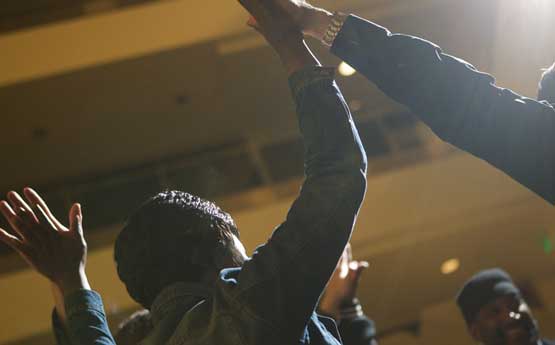
Ryan White Voices
Videos
Ryan White Voices: A Legacy of Care
Curtis: The Road From Here
Darlene: Lord Protect Me
José: Mucho Orgullo
Darlene: Moving Forward
Living With HIV: Positive Voices
Audio
Caregiver Stories
A Sense of Justice
“AIDS is all I’ve ever done. I’ve only been in HIV nursing. I felt like I needed to do it. Things kept presenting themselves to me and it was as if I didn’t have much choice about it.“
Sheila Davis
Life is too short for white walls.
“If you ever told me that I’d learn life lessons from 40-year-old people who abuse substances, I never would have listened to you,” says Sheila Davis. “But I have really learned a lot being around people who are nothing like me.”
Now an established leader in the field of AIDS care, Sheila’s initial experiences in nursing were surprisingly less than positive. “I volunteered as a candy striper with my best friend whose father was a doctor at the hospital,” she says. “During that time, I kept wondering, ‘Who the hell would want to be a nurse?’ You’re lowest on the totem pole; you’re treated so poorly, and everyone you help is sick.”
Sheila had talked so badly about nursing—and was so interested in politics—that when she decided to apply to nursing school her senior year of high school, no one took her seriously. “I had been president of the student council in my high school and thought I was going to do political science. As it turns out, nursing became a type of activist position. I wanted a sense of justice,” she says.
And Sheila found it in AIDS nursing.
The “Moon Suit Era”
Sometimes there are experiences which change the course of our lives and then sometimes there are people. For Sheila, there was James.
Sheila attended Northeastern University in Boston, Massachusetts, a five-year school with a cooperative (co-op) education curriculum, which requires students to do field-related internships as well as coursework. It was during such an internship as a preceptor—a teacher or specialist who provides practical training, especially in medicine or nursing—Sheila came in contact with HIV for the first time. It was 1986.
James, a nurse at the hospital, had a partner who was being treated for HIV. “I was shocked at how poorly James’ partner was being treated by hospital staff,” Sheila recalls. “People would come in with gloves and caps while James and I were sitting in regular clothes playing cards by the foot of the bed. It was definitely the ‘Moon Suit Era’ and it all seemed so strange. A lot of times staff would come in and it didn’t matter if James was in the room or not, they would always talk, right past both him and his partner, to me. There were a lot of discriminatory undertones because they were a gay couple.”
Sheila says that her friendship with James and his partner as well as her anger at mistreatment helped fuel her interest in HIV. “AIDS is all I’ve ever done. I’ve only been in HIV nursing,” she says. Pausing to further explain why that is, Sheila replies, “I felt like I needed to do it. Things kept presenting themselves to me and it was as if I didn’t have much choice about it. I hadn’t considered this specialty before my co-worker’s partner had AIDS but it has changed the way I see the world.
“I’m not an overly religious person, but after befriending James and working during those early days of HIV, I felt like this was the work I was meant to do and so I began in this field and have never left because I still feel like this is where I’m needed.”
All We Had Was AZT
Sheila finished her work as a preceptor and graduated from nursing school in 1988. She then moved to Washington, D.C. where she worked on the HIV/Oncology floor at George Washington University Medical Center. Sheila found a more pleasant working environment. “Staff had to choose to work on this floor, so everyone who was there, wanted to be. People were treated very well,” says Sheila.
The situation was, however, equally disheartening. She says, “I think once people got into their head to be tested, especially back then, they didn’t do it lightly. It was overwhelming to look out and see desperation in their eyes, because they either feared they were infected or they knew someone who was.
“Often even after trying your best, you still went home at the end of the day feeling inadequate. Patients looked to me for answers and we really didn’t have any. All we had was AZT.”
For The First Time in My Life, I Was the Minority
Being someone who had worked in HIV/AIDS since the early years, Sheila was asked to teach as part of a nursing program as a clinical faculty/lecturer for graduate level HIV/AIDS sub-specialty nursing program at Howard University from 1992 to 1993. Sheila found there was still a lot of stigma associated with the disease within the Black community.




